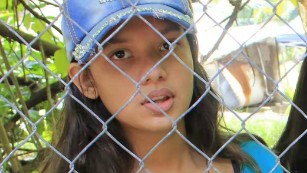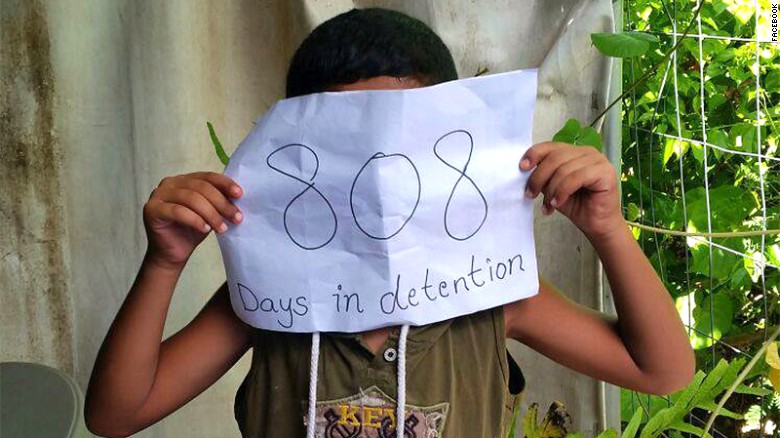Children urge Australia to free them from Nauru island 'prison'
At just 10 years old, Mizba Ahmed and her family fled persecution in Myanmar.
Boarding a smuggler's boat bound for Australia, she never imagined that instead of finding a better life, she'd end up spending 18 months in detention on the isolated Pacific island of Nauru.
"Nauru is the worst place I've ever seen for children," the 12-year old said.

Mizba Ahmed
Dozens of children like Mizba have been held for months, or even years, at an Australian-backed refugee processing center on Nauru, a tiny island measuring just 21 square kilometers or eight square miles.
CNN spoke to multiple current and former child detainees who describe the Nauru camp as a prison. Children live behind fences. They are searched when leaving or entering the camp, including when they go to school. They feel intimidated or harassed by the omnipresent security guards. But mostly these refugees describe the hopelessness of their lives and the vanishing dreams of an education and a future beyond the confines of this tiny island.
"It's not a crime to want to have a better life and future," said one 18-year-old girl who asked CNN not to reveal her name because she fears for her safety. "We are treated as prisoners."
Stopping the Boats
As Europe struggles to cope with the flood of migrants and refugees arriving by boat, Australia has for years embarked on a controversial and unusual policy. It intercepts boatloads of migrants and refugees and then places them in detention on small, relatively poor Pacific island nations.
Between 2007 and 2013, the Australian government says at least 1,200 people lost their lives trying to make the journey over water, and thousands more ended up in Australia's immigration system. The government says it is trying to send a clear message to potential asylum seekers that if they board a boat there is no hope of settling in Australia.
Since 2012, refugees who arrive by boat are sent for processing to either the Nauru camp or one on Manus Island, in Papua New Guinea. If their asylum claims are granted, they are settled in those countries or some have the option of moving to another country: Cambodia.
It's a deterrent the government argues has worked.
"The Coalition Government has stopped the perilous flow of people smuggling ventures. There has not been a successful people smuggling venture to Australia in the last year," an Australian government spokesperson said in a statement to CNN. The Australian immigration minister declined CNN's request for an interview.
The statement continued, "Stopping the boats has enabled this Government to return integrity to Australia's humanitarian and refugee programme."
News Courtesy: www.cnn.com











